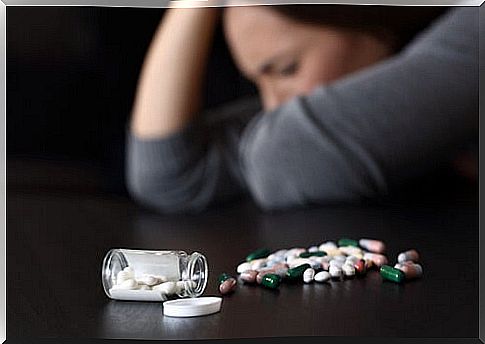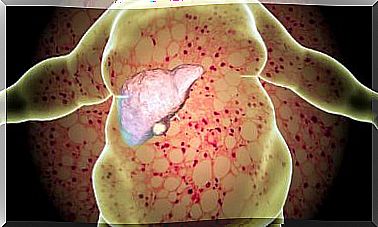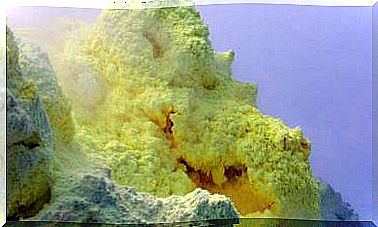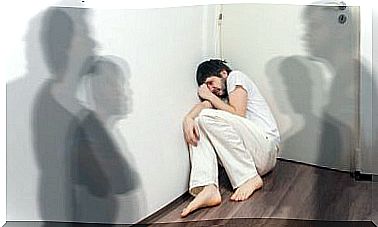Drugs That Cause Excessive Drowsiness
It is very common that, on occasions, we are sleepy during the day and we do not know how to relate it to any cause. The truth is that if we are medicated, there are many drugs that cause excessive drowsiness without us being informed of it.
Although health professionals sometimes miss out on alerting patients to these types of adverse drug reactions, it is essential that when starting a new treatment we inform ourselves about the type of drug we are going to take.
Being well informed about the treatment under which we are medicated can avoid many complications. For example, one of the most widely used drugs that cause excessive drowsiness are benzodiazepines.
These drugs, by producing sleep, can cause both work and traffic accidents in patients who have consumed them and were unaware of this adverse reaction. Therefore, it is essential to know these effects to prevent this type of outcome.
General characteristics of drowsiness

Drowsiness is one of the most frequent symptoms related to sleep; it affects approximately 20% of adults in developed countries.
This disorder can cause serious and different consequences such as traffic accidents, work accidents or other health problems in adulthood. In addition, adolescents with this disorder can significantly reduce their school performance.
Among the main causes of daytime sleepiness are the following:
- Sleep deprivation : it is the most common cause. Studies indicate that sleeping 6 hours for 14 days causes a significant deterioration of neurobiological functions.
- Drug effects : drowsiness is one of the most common adverse effects of drugs that affect the central nervous system.
- Illegal substances.
- Obstructive sleep apnea.
Next, we will look at some of the drugs that cause excessive drowsiness. Therefore, take note and consult with a healthcare professional about any issues that arise.
Alpha-blocking drugs
They are drugs that are used for the treatment of hypertension, as well as for the treatment of benign prostatic hyperplasia and Raynaud’s disease. Alpha-blockers are associated with decreased nighttime sleep, sedation, and daytime sleepiness.
Benzodiazapines
In Spain, about 30 compounds with indications such as anxiolytics, hypnotics or muscle relaxants are marketed under more than 90 different registered trademarks. Some of these medications that belong to the benzodiazepine family are bromazapam, clonazepam, clorazepate, midazolam, or lorazapam.
They are drugs that reduce anxiety and enhance the effects of a substance known as GABA, which is responsible for inhibiting the activation of the central nervous system.
Therefore, they are drugs that cause excessive drowsiness due to the aforementioned effects. Thus, if you are going to carry out any activity that requires special attention, you must exercise caution.
First-generation H1 antihistamines
These drugs block histamine H1 receptors, that is, they prevent histamine from binding to these structures and thus triggering the typical effects of this substance.
Histamine is a chemical related to allergies. When a person comes into contact with a substance to which they are allergic, histamine levels skyrocket and the typical symptoms of these reactions occur.
However, these drugs, such as diphenhydramine, can also suppress the central nervous system, causing severe drowsiness.
Antidepressants

According to studies, sedative antidepressants have been shown to improve sleep in depressed patients with insomnia .
Perhaps for this reason, in recent years the use of low-dose sedative antidepressants as hypnotics in patients with insomnia, but without clinical depression, has grown a lot. Among the antidepressants that cause this drowsiness are trazodone and mirtazpaine.
Other drugs that cause excessive drowsiness
In addition to those mentioned, there are many medications that present this adverse effect. Here are other medications that cause this symptom, however, there are many more:
- Antiemetics
- Vitamin A in excessive doses.
- Muscle relaxants.
- Antiepileptics
- Sleep promoters.
Conclution
It is essential to be informed about which drugs cause excessive drowsiness. If you don’t know it, the probability of serious accidents increases considerably. Consult both the doctor and the pharmacist any questions you have on this subject and, above all, never self-medicate.









